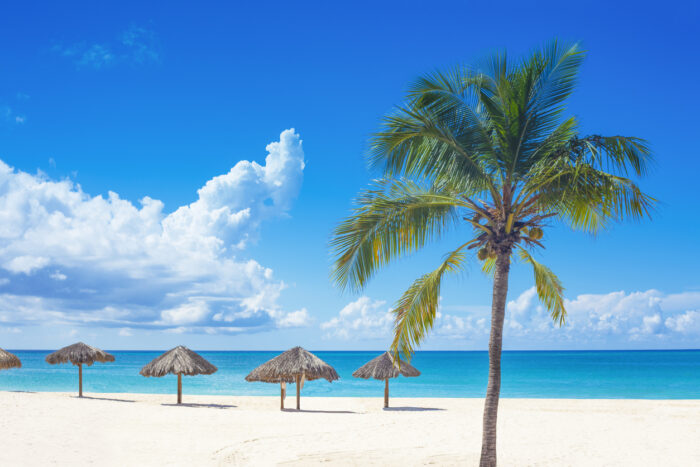Curaçao: Here to stay but unfit to rest on its laurels

In the first instalment of a two-part article, 4H Agency’s Dmitry Hotsyn provides an in-depth overview of Curaçao as an igaming hub and the pathway to regulatory reform
The post Curaçao: Here to stay but unfit to rest on its laurels first appeared on EGR Intel.
Curaçao may not have been the first jurisdiction to legalise online gambling or to issue licenses (a distinction that belongs to Antigua and Barbuda), nor were Curaçao-based operators the first to accept online wagers (a title likely held by the International Lottery of Liechtenstein, which accepted online payments starting in 1995). Nevertheless, Curaçao emerged truly as a leading hub for igaming businesses.
The exploration of the igaming realm began in 1993-94 when the island parliament adopted the National Ordinance on Offshore Games of Hazard (NOOGH), introducing a licensing process that was swift, straightforward and cost-effective – and extremely limited in scope.
In 1996, Curaçao issued its first online gambling licences, known as Master Licences, to four local companies: Curaçao eGaming, Gaming Services Provider NV, Curaçao Interactive Licensing NV, and Antillephone NV. These entities essentially became sub-regulators with the authority to issue sublicences to those interested in entering the online gambling business. The Master Licensees set their own standards for how sublicensees should operate, including implementing international standards and practices (such as KYC checks on their players), setting sublicence pricing, and more.
This simple setup led to a thriving business in licence reselling, with these Master Licensees issuing thousands of licences over time, giving birth to the development of new, innovative business approaches and services. Among these was a vast white-label igaming industry, significantly lowering the barriers to entry for new businesses in the industry. Major household brands, such as Pinnacle, along with numerous niche and generic online products, originated in Curaçao as well.
By the early 2010s, Curaçao ranked 10th among gambling jurisdictions by transaction volume, outperforming Italy, France and Spain, and trailing only behind major markets like the UK and the US.
This rapid issuance of licences had an unexpected outcome: the exact number of licensed companies in Curaçao is unknown even to the Ministry of Finance of Curaçao and other official institutions within the jurisdiction.
Despite commercial success, Curaçao’s licensed operators faced a drawback: they operated offshore, catering to an immeasurable number of jurisdictions, with little regard given to the laws of the countries where their players resided. While advantageous at the turn of the century, the situation began to change by the mid-2010s.
Issues piling on the island
The remarkable success of Curaçao as a gambling jurisdiction stems from a combination of several factors. Relaxed licensing requirements and a booming offshore banking sector are just part of the equation.
A significant factor was the slow response of other jurisdictions, which began to regulate their online gambling markets and restrict access to offshore operators in the 2010s. These measures included payment restrictions, website blocking, and most crucially, pressure on Curaçao to tighten control over its underregulated industry.
International bodies, such as the FATF and OECD, joined in the critique, pointing to Curaçao’s insufficient anti-money laundering efforts and lax enforcement against tax avoidance schemes. Additionally, concerns were raised about the widespread acceptance of cryptocurrency payments by Curaçao operators. The Netherlands, ex-metropole for Curaçao, also highlighted shortcomings in how the gambling industry was managed in this autonomous region.
The global dissatisfaction with Curaçao’s approach became apparent through the increasing number of cease-and-desist letters sent to Curaçao-licensed operators by foreign regulators, as well as fines levied against them. Yet it was clear that the practices of these operators were a consequence, not the cause, of the situation.
Notably, Curaçao also faced internal debates regarding the future of its iGaming sector. Gambling is a significant contributor to the island nation’s GDP, with estimates possibly exceeding 20%. However, the government’s revenue from gambling licenses and taxes is not as substantial as it could be, and the sector’s contribution to job creation is minimal, as online businesses are not required to establish a physical presence in Curaçao.
These challenges were compounded by the Covid-19 pandemic, which devastated Curaçao’s tourism revenue. As a result, Curaçao committed to revising its gambling legislation in exchange for financial aid from the Netherlands to address the impacts of Covid-19.
Gambling reform: an ambitious blueprint
The effort to create a new gambling law began in 2020, using the Maltese regulatory framework as a model for inspiration. The core principles of the proposed legislation were straightforward:
Direct licensing: The establishment of a new, independent regulator responsible for issuing direct licenses to gambling enterprises;
Revenue generation: The new system aimed to secure direct payment of license fees and improve the tax compliance of licensees;
Strict regulations: New entrants would be required to comply with internationally recognised standards and refrain from operating in markets that demand local licensing;
In-depth licensee knowledge: The licensing process would include thorough checks on UBOs and key individuals, encompassing source of wealth verifications, negative media screenings, and more;
Evolutionary approach: Changes were to be incremental, ensuring a smooth transition for all parties involved.
Furthermore, Curaçao planned to introduce B2B licenses, affirm the legality of cryptocurrency transactions, and establish up-to-date standards of responsible gambling. This overhaul was to be coupled with increased bureaucracy, requiring licensed operators to submit regular reports to the regulator.
Industry rumours had initially pegged the end of 2021 as the deadline for implementing the new regulatory framework. However, the first drafts of the law met with significant criticism, prompting the Ministry of Finance (MOF), a key governmental stakeholder, to restart the drafting process. After multiple delays, by early 2023, the industry was in limbo, awaiting reforms that seemed unlikely to materialise.
Still, the final implementation date appeared to be settled in mid-2023. By September 2023, the Curaçao Gambling Board (CGB), the gambling industry regulator, issued new terms for direct licensing. In November 2023, the application process for these licences was opened. Although transitional and issued under the existing NOOGH framework, these licences served as a preliminary test for the forthcoming licensing system. Concurrently, the MOF clarified that existing Master Licences would not be extended beyond their current terms, with the issuance of sublicences set to end by March 31, 2024.
In December 2023, the Ministry of Finance finally presented the draft Law on Gambling (LOK) to the parliament of Curaçao. The reception was far from warm, with criticism from the AML authority, the Central Bank, the Bar Association of Curaçao, advisory bodies, and several MPs, leading to further industry turmoil. Lastly, the Netherlands promised to give the draft law additional scrutiny, intending to ensure that previous agreements were honoured. Continuing the endless cycle, the draft LOK was sent for a new rework.
The transitory licences also faced their share of criticism. These licences require applicants to adhere to a set of anticipated regulations from the forthcoming LOK, aiming for a smooth transition to the new legal framework.
A key change is the CBG’s new mandate to vet key individuals within licensee companies including Ultimate Beneficial Owners (UBOs) with a 10% or greater stake – against sanctions/PEPs (Politically Exposed Persons) lists, adverse media reports, and to assess their source of wealth and any past enforcement actions. Notably, the cost for a transitory licence is significantly higher than for sublicences, set at approximately €62,000 annually.
Transitory licences will expire upon the enactment of LOK. The industry received these licenses sceptically, questioning their necessity before the new law’s passage through parliament. As a result, the first transitory licence was issued in January 2024, followed by just seven more by the end of February. Given the hundreds, if not thousands, of active sublicences, this uptake hardly marks a successful initiative.
Furthermore, a member of parliament (MP) from Curaçao raised legal concerns about these licenses, sparking a debate with the MOF. This disagreement is a clear indication of the deep-seated divisions among various stakeholders. Whatever the outcome may be, it does little to reassure operators considering applying for a transitory license.
Dmitry Hotsyn is head of the CIS Desk and senior consultant at 4H Agency. Part two of this article will run tomorrow, Tuesday 8 April.
The post Curaçao: Here to stay but unfit to rest on its laurels first appeared on EGR Intel.
EGR Intel
[shorturl]
[/shorturl]

